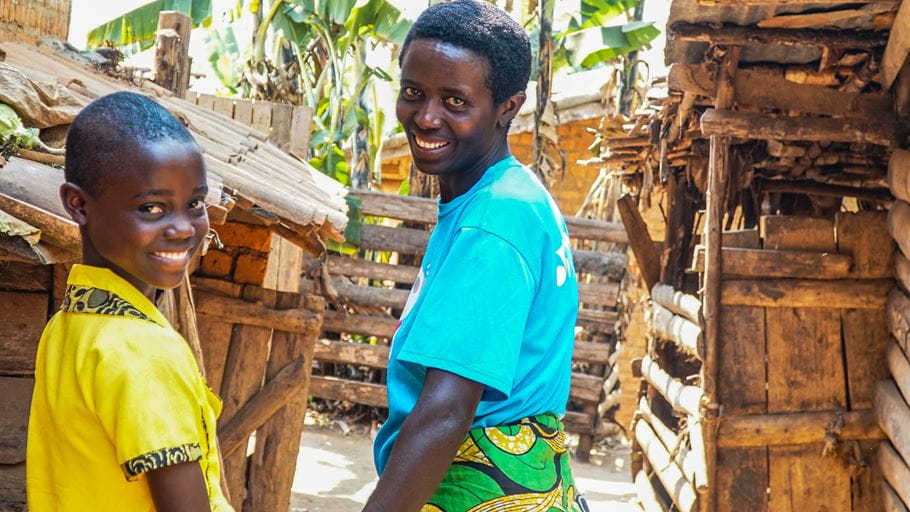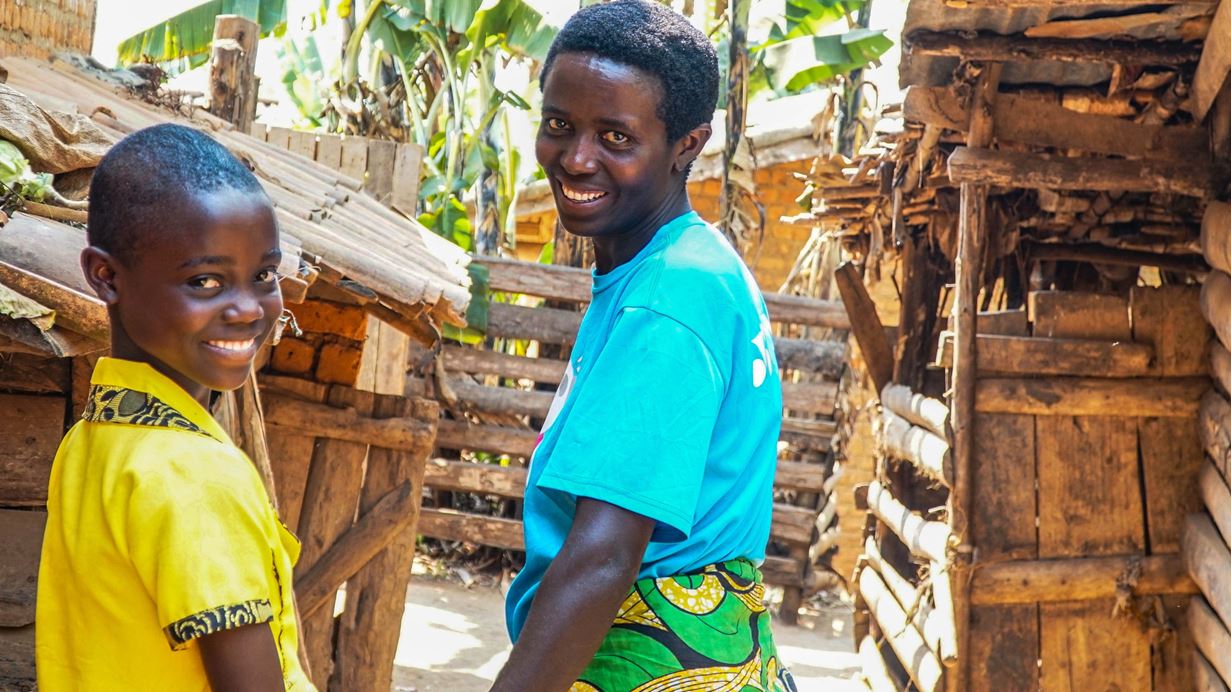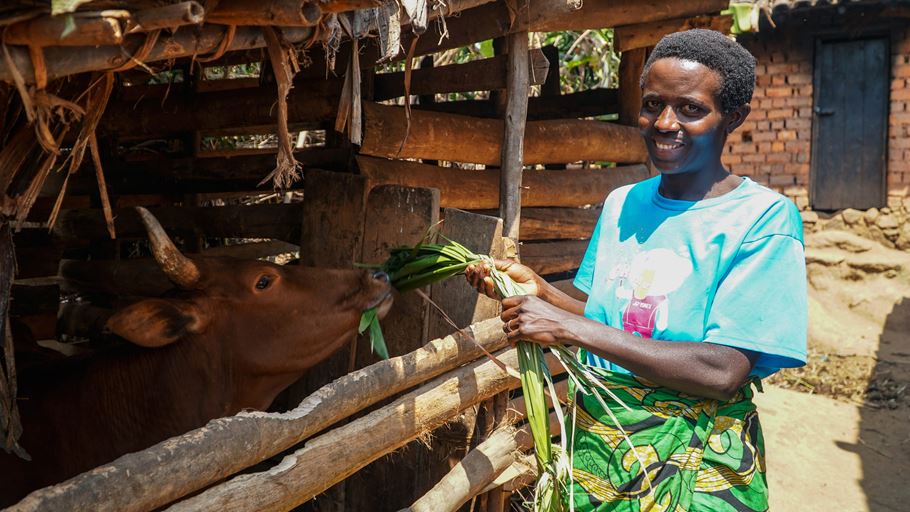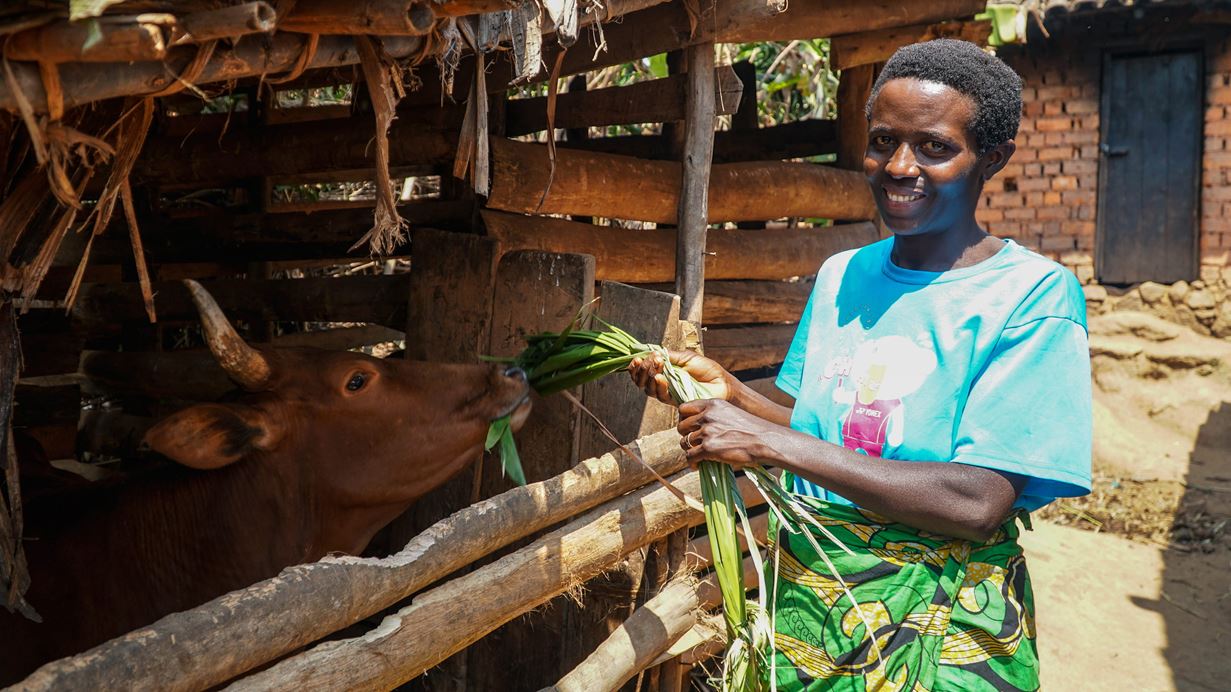At 13 years old, Chanelle already knows what she wants to do when she grows up: ‘I want to be a doctor,’ she declares with a big smile. ‘Yes she can!’ affirms her mother, Diane. ‘She is a survivor, and I believe that God has great plans for her.’ They are celebrating that their village in Burundi is now free from hunger. Here’s how it happened…
Nine years ago, Chanelle almost died of malnutrition. ‘She was very weak – we didn’t know what was wrong. At the hospital, she was diagnosed as being severely malnourished,’ explains Diane.
Diane, her husband and their six children live in Matana, in the south west of the country. Like 90 per cent of Burundians, they are smallholder farmers doing subsistence farming. This means they are growing crops and raising livestock just to feed their families – there is nothing left over to sell and earn an income from.
But with the effects of the climate crisis, such as changing weather patterns, made it harder to farm. This meant there was even less food to go round. Things began to get worse. In one year alone, more than 200 children in the community were sick – all due to malnutrition.
Wake-up call
The Anglican Diocese of Matana, with the support of Tearfund, knew they had to try and turn things around. They set up a feeding and support centre in the community. Chanelle was one of the children who was treated for severe malnutrition. And, after two months of support, she made a complete recovery.
‘It was a scary time and a wake-up call for us and for the whole community. We decided to put our efforts together, work with the diocese, and make sure our children will never be sick of malnutrition again,’ says Diane.
The diocese ran training programmes with mothers in the community to help them keep their children safe. This included teaching them to make a special porridge that ensured the children got all the nutrients they needed. The porridge is made with local ingredients such as maize, soybean, peanuts, sugar and oil, to make it accessible for everyone. There was also training on the importance of good hygiene practices – such as handwashing.
And the support didn’t stop there. To help the community be free from poverty for the long-term, the diocese worked with families to help them make the best use of the land for farming. This included sharing new techniques so they could adapt to the changing weather patterns.
‘I have a kitchen garden in my home where I grow different kinds of vegetables,’ says Diane. ‘We have embraced the teachings we received, and in the last years, we have not had any cases of malnutrition in our community – instead our lives have positively changed!’
















